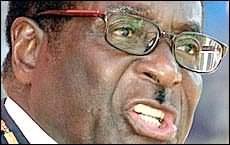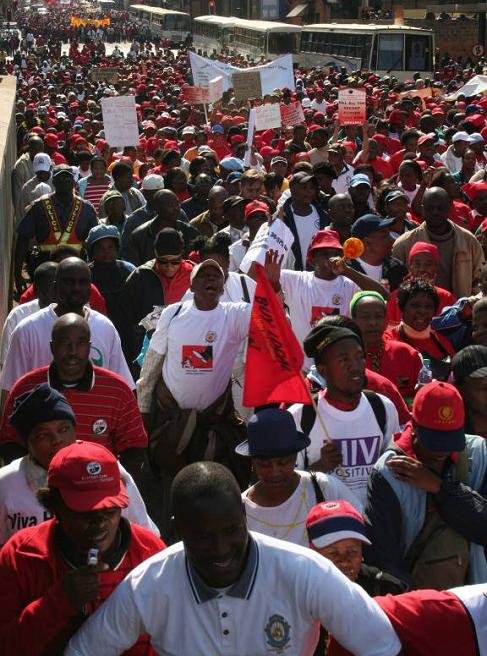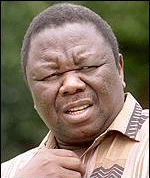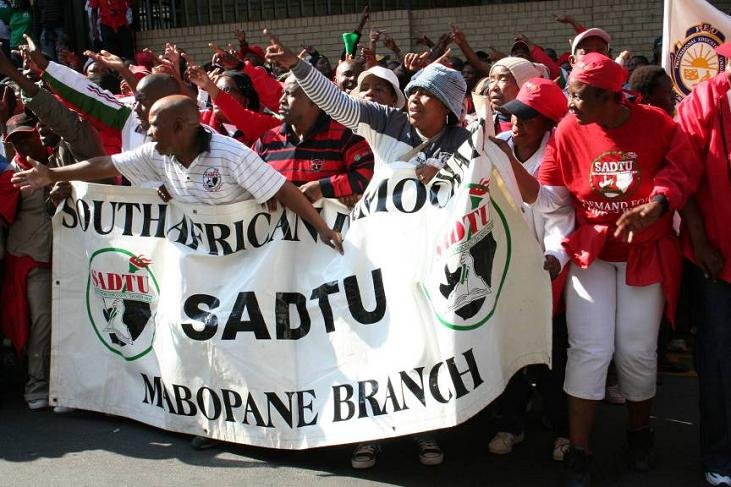
Robert Mugabe's fate
By Mutumwa D. Mawere
Last updated: 07/02/2007 01:51:50
AS THE African Union (AU) deliberates the future of the continent's political and economic architecture, there is no doubt that Zimbabweans are more confused by the fate of one man than what the country has to do to move forward.
Anyone talking about the resolution of the Zimbabwean crisis cannot avoid discussing the fate of President Robert Mugabe. While the opposition has laid out a road map for Zimbabwe, it is clear that behind the camouflage of constitutional and electoral changes, the real agenda is to remove Mugabe through whatever means. Mugabe and his party appear not to be blind to the underlying regime change agenda.
The outgoing US Ambassador to Zimbabwe, Christopher Dell, and Dr Ibbo Mandaza, seem to share the view that Mugabe will bow out of the political scene by the end of the year. While Mandaza's prediction is based on his understanding of the internal dynamics in Zanu PF, Ambassador Dell's prediction is based on the unsustainable economic situation that now characterises contemporary Zimbabwe.
Notwithstanding what Mandaza and Dell think, there is nothing on the ground in Zimbabwe to suggest that Mugabe has any intention of quitting let alone that Zanu PF has any alternative candidate than Mugabe. When one looks at the political scene, Zanu PF and Mugabe have not been persuaded that Zimbabwe needs a new constitution as suggested by the MDC-led opposition. On the contrary, they believe that there is no constitutional crisis and the current government is not only capable of conducting free and fair elections but is competent to do so more than many other African states.
What is clear is that Zanu PF has not missed any election since independence and there is no reason to believe that next year's election will not be held.
With respect to constitutional amendments, Zanu PF believes that parliament is competent to pass any amendment and there is nothing undemocratic about this. On the other hand, the opposition believes that the current government is illegitimate and has no mandate to amend the constitution let alone to govern. While the same opposition has no problem being part of the state through its members being representatives in the Parliament, they do believe that issues concerning the constitution should be handled outside the framework of the state.
With respect to constitutional amendments, Zanu PF believes that parliament is competent to pass any amendment and there is nothing undemocratic about this. On the other hand, the opposition believes that the current government is illegitimate and has no mandate to amend the constitution let alone to govern. While the same opposition has no problem being part of the state through its members being representatives in the Parliament, they do believe that issues concerning the constitution should be handled outside the framework of the state.
On constitutional issues, there is no consensus on the way forward and it is unlikely that Zanu PF will be persuaded even through the Thabo Mbeki mediation effort to commit political suicide and agree on any changes that will weaken the party by removing its most potent weapon, Mugabe, from the scene. Even within Zanu PF, the much talked about factions appear to be leaderless and when subjected to even a small test are never there to defend their interests. If there was any lesson from the Tsholotsho debacle, it is that there is no constituency within Zanu PF (with the exception of Jonathan Moyo who may never have understood the psyche than informs the party) to change the great leader.
This brings us to the issue of the economy.
While many may argue that Zanu PF policies are the cause of the economic collapse of the country, Mugabe and his followers are convinced that Zimbabwe is a victim of a well orchestrated campaign by imperialists whose real motive is regime change and not the interests of Zimbabwe. They link the economic crisis to the land issue in a manner that is digestible by any rank and file member of the party. While many argue that there is no causal link between the economic crisis and the land issue, no one has been able to explain why the international community would be so angry with Zimbabwe and not with Nigeria, Pakistan or Ivory Coast if democracy was the real concern.
The emergence of Chavez and the redefinition of the post-colonial state as a developmental state by many former colonial countries clearly show that Dell and Mandaza may be misinformed about what is going on in Zimbabwe. If Mugabe's thinking about the role of the state in post colonial state and the nature of a national democratic revolution and the tactics and strategies required to sustain the gains of the revolution is spreading throughout the developing world, why then should he bow out? It may not be inconceivable that Mugabe received the buy-in from the SADC Heads of State about his understanding of the broader context of the Zimbabwean crisis to the extent that they may all have agreed about the need to defend his legacy.
It is ironic that even at the just ended ANC policy conference, a key consensus among delegates was the need for South Africa to advance as a developmental state, with increased state intervention to drive growth and create employment. The policy thrust of ANC may not be any different from that of Zanu PF. In as much as ANC is not happy with the monopolisation of the economy and the role of the unions, Zanu PF is one party that feels that it has borne the brunt of counter-revolutionary and reactionary onslaught targeted at undermining the role of the state in the transformation of the economy.
It is not surprising that Mugabe remains convinced that the state must lead the defence of the nation against any attempt to reverse the gains of the revolution. In this regard, even selling a car above the state determined price (like the Willowgate scandal); selling foreign exchange above an arbitrarily determined exchange rate, and selling goods and services above prices the state thinks are justified is seen as a sign of treason or as part of some regime change agenda.
Mugabe remains in control of Zanu PF's agenda and it would be naïve to suggest that he has lost the control of the party. Any right thinking member of Zanu PF knows what Mugabe wants to hear in terms of the party's ideology and the role of business in transformation. Mugabe still believes that the state can manage businesses better than the private sector and no market system can address the developmental challenges of a post colonial state. I am convinced that within Zanu PF there are many who share his approach to development although in practice they may not subscribe to socialist policies.
Last week, Mugabe did not mince his words when he said: "We will seize the mines ... we will nationalise them if they continue with the dirty tricks. All companies, we will take them over if they continue with their dirty game. Take note, we will be equal to the challenge. We are capable of playing that game too."
It falls to reason that he is surely planning to go nowhere.
The nationalisation threat by Mugabe is not new but is shared by many African governments. In such an environment, any profitable enterprise is easily seen as a negation of the struggle.
On Tuesday last week, Industry and Trade Minister Obert Mpofu said Zimbabwe will transfer control of all companies, including foreign banks and some mining operations, to locals if a planned black empowerment bill is passed by the country's ruling-party dominated parliament. The domestication of enterprises using the state is not unique to Zimbabwe and, therefore, it would be unlikely that Mugabe would choose to resign now when the fun has just begun given the extent of the asset ownership architecture in Zimbabwe after 27 years of independence.
In light of the above, it would be wrong to think that Mugabe is concerned about the status of the Zimbabwean economy and shares the view that he is the problem. In the circumstances, the starting point for people who want to remove him would be to convince Zanu PF that its ideology will not move Zimbabwe forward rather than merely replacing its leader.
Mutumwa Mawere's weekly column appears on New Zimbabwe.com every Monday. You can contact him at: mmawere@ahccouncil.com
JOIN THE DEBATE ON THIS ARTICLE ON THE NEWZIMBABWE.COM FORUMS
newsdesk@newzimbabwe.com
JOIN THE DEBATE ON THIS ARTICLE ON THE NEWZIMBABWE.COM FORUMS
newsdesk@newzimbabwe.com

Peace and Tranquility???
 Peace and Tranquility??? |
Cell in RSA: 0791463039
LINK!!!














No comments:
Post a Comment